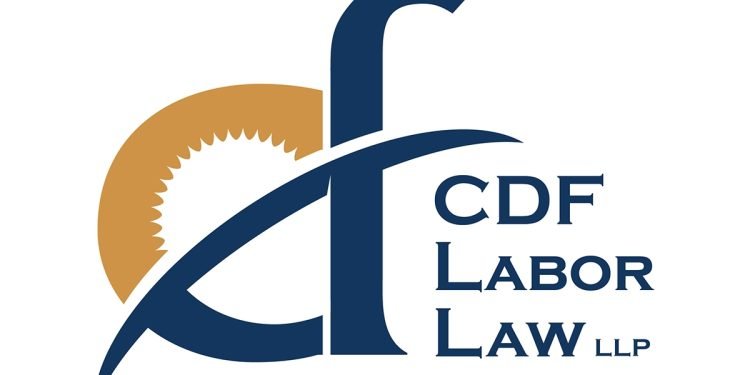CDF Labor Law LLP Highlights the Importance of the WARN Act in Business Transactions and Restructuring

June 16, 2023
CDF kicks off its new monthly series focusing on labor and employment matters that often arise in business dealings, particularly during these unusual economic times. While some businesses continue to grow through acquisitions, others are experiencing contraction and downsizing. For companies considering downsizing, CDF provides valuable insights into federal Workforce Adjustment and Retraining Notification Act (WARN Act) requirements.
The WARN Act mandates certain notice requirements for layoffs and plant closings. It applies to businesses that meet either of the following criteria: (i) having 100 or more employees, excluding part-time employees and those with less than 6 months of service in the past 12 months; or (ii) having 100 or more employees, including part-time employees, whose combined weekly hours exceed 4,000 hours, excluding overtime ("Covered Business").
Covered businesses must adhere to WARN Act notice requirements when experiencing: (i) a mass layoff, which refers to a reduction in force not resulting from plant closure but causing employment loss of at least 50-499 covered employees (representing at least 33% of the total active workforce) or 500 or more covered employees at a single place of employment within a 30-day period; or (ii) a plant closing, defined as the permanent or temporary closure of a single place of employment or multiple facilities/operating units leading to work loss for 50 or more covered employees within a 30-day period. The Department of Labor provides specific definitions for single places of employment, highlighting that a facility may encompass several single places of employment. This analysis is highly fact-specific, subject to 90-day review periods, and should consider the latest case law developments. There are exceptions to the notification requirement in cases of failing businesses, unforeseeable circumstances, and natural disasters. It is crucial to review the specific definitions in the WARN Act before making conclusions about notification obligations.
When a triggering event occurs, covered businesses must provide 60 calendar days' advance notice to employees or their representatives, the local chief elected official, and the State Rapid Response Displaced Worker Unit. Prompt assessment of this notification requirement is essential to avoid disrupting transactions or business restructurings and mitigate the risk of financial damages and penalties. Violations of the WARN Act's notice requirement can result in liability to affected employees for back wages and benefits during the violation period (up to 60 days) and civil penalties of up to $500 per day.
Considerations for State Laws
Many states, including California, have "mini-WARN" acts with stricter standards and notification requirements. Employers must comply with both federal and state WARN laws whenever a covered facility experiences a triggering event. California's WARN Act ("Cal WARN") applies to industrial or commercial facilities employing or having employed at least 75 individuals in the past 12 months ("Covered Establishment"). Cal WARN is triggered when a Covered Facility layoff affects 50 employees (or one-third of full-time employees) and lasts for at least 6 months, with some exclusions.
To avoid potential complications in transaction timelines and exposure to damages and penalties, it is essential to evaluate potential cuts related to pending transactions or restructurings as early as possible. Non-compliance with WARN Act requirements may also expose officers, directors, and secured creditors to liability.
CDF remains dedicated to providing guidance and expertise on labor and employment issues during business transactions and restructurings. Stay tuned for more valuable insights in their upcoming monthly series.
For further information about CDF and their services, visit their official website or contact their office directly.
About CDF:
CDF is a leading law firm specializing in labor and employment matters. Their team of experts offers comprehensive legal services,
focusing on compliance, litigation, and strategic counseling. CDF is committed to assisting businesses in navigating the complexities of labor laws and regulations, ensuring employee rights and interests are protected while achieving business goals.

 chandni
chandni 



